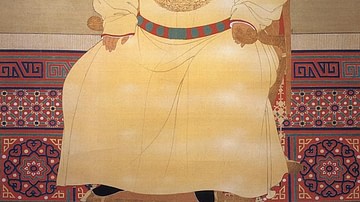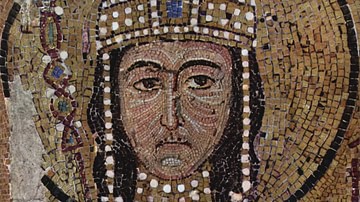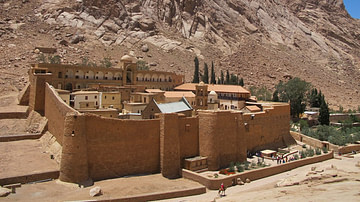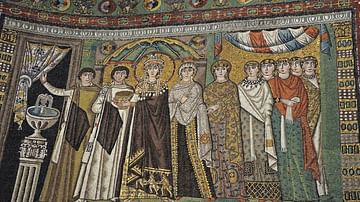Search
Did you mean: Empire?
Search Results

Definition
War of the Sixth Coalition
The War of the Sixth Coalition (1813-1814), known in Germany as the Wars of Liberation, was the penultimate conflict of the Napoleonic Wars (1803-1815). The Sixth Coalition, which included Russia, Austria, Prussia, the United Kingdom, Sweden...

Definition
Asuka Period
The Asuka Period (Asuka Jidai) of ancient Japan covers the period from 538 CE to 710 CE and, following on from the Kofun Period (c. 250-538 CE), so constitutes the latter part of the Yamato Period (c. 250-710 CE). For some scholars the period...

Definition
Emperor Taizong of Tang
Taizong (birth name, Li-Shimin, l. 598-649 CE, r. 626-649 CE) was the second emperor of the Tang Dynasty and is considered one of the greatest rulers in Chinese history for his reforms of the government and the laws, his religious tolerance...

Definition
Hongwu Emperor
The Hongwu Emperor (r. 1368-1398 CE) was the founder of the Ming dynasty (1368-1644 CE) which took over from the Mongol Yuan dynasty (1276-1368 CE) as the rulers of China. Born a peasant with the name Zhu Yuanzhang, the future emperor led...

Definition
Anna Komnene
Anna Komnene (aka Anna Comnena, 1083-1153 CE) was the eldest daughter of Byzantine emperor Alexios I Komnenos (r. 1081-1118 CE) and the author of a lengthy biography of her father's reign, the Alexiad. Although not an impartial history, Anna's...

Definition
David I of Scotland
David I of Scotland reigned from 1124 to 1153 CE. Taking over from his elder brother Alexander I of Scotland (r. 1107-1124 CE), David continued to consolidate the kingdom of Scotland as a single nation, built castles and monasteries, and...

Article
Trade in the Byzantine Empire
Trade and commerce were essential components of the success and expansion of the Byzantine Empire. Trade was carried out by ship over vast distances, although for safety, most sailing vessels were restricted to the better weather conditions...

Article
Byzantine Monasticism
Monasticism, that is individuals devoting themselves to an ascetic life in a monastery for devotional purposes, was an ever-present feature of the Byzantine empire. Monasteries became powerful landowners and a voice to be listened to in imperial...

Article
Theodora: A True Heroine?
Was Theodora I, the wife of Emperor Justinian of Byzantium (reigned 527 - 565 CE), a heroine? The historian Treadgold calls her a protectress of women, as she used her influence to help them gain rights. She is also seen in popular legend...

Article
Royal Women in the Mughal Empire
It was not only the Mughal emperors that left an indelible mark in the history of the Indian subcontinent but also the queens and princesses. The latter's contributions to art, architecture, literature, cuisine, refinement, and administrative...